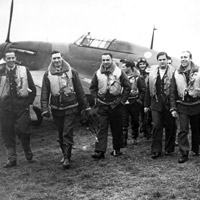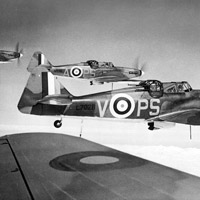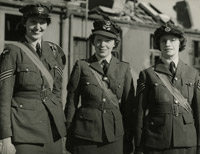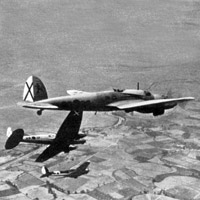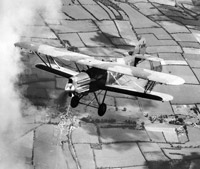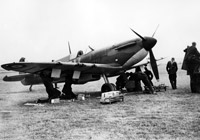Per Ardua Ad Astra. The 83rd Anniversary of the Battle of Britain
- Sep 6, 2023
- 2 min read

Battle of Britain Service
17th September
11 am
"through adversity to the stars"
The 83rd Anniversary of this historic occasion will be commemorated with a special service at the Town Church.
The Battle of Britain is the name given to the sustained strategic effort by the German Air Force during the summer and autumn of 1940 to gain air superiority over the Royal Air Force (RAF), especially Fighter Command during the Second World War. The name derives from a speech made on 18 June 1940 in the House of Commons by Prime Minister Winston Churchill who said, "The Battle of France is over. I expect the Battle of Britain is about to begin". The failure of Germany to reach its objectives - to destroy Britain's air defence or to force Britain into an armistice or surrender - is considered both its first major defeat and the crucial turning point in the war. If Germany had gained air superiority, Adolf Hitler might have launched Operation Sealion: an amphibious and airborne invasion of Britain. The Battle of Britain was the first major campaign to be fought entirely by air forces. It was the largest and most sustained bombing campaign up until that date. Initially, RAF airfields were attacked, however as the battle progressed, operations were extended to the strategic level: systematic destruction of aircraft production centres and ground infrastructure. Eventually the German Air Force resorted to attacking areas of political significance and terror bombing tactics.
The British date the battle from 10 July to 31 October 1940, which represented the most intense period of daylight bombing. German historians usually place the beginning of the battle in mid-August 1940 and end it in May 1941, on the withdrawal of the bomber units in preparation for Operation Barbarossa, the campaign against the Soviet Union, which began on 22 June 1941.
The Battle of Britain is commemorated annually at the beginning of September in gratitude to The Few who defended the country and therefore gave us the freedom that we have today. It is also an opportunity to remember the people who are currently fighting for the country. Until its disbandment in 2011, No 201 (Guernsey's own) Squadron, The Royal Air Force flew to the Island from its base at RAF Kinross in Scotland. The affiliation with 201 Squadron began in WW2 and remained strong until its disbandment. During their visits to Guernsey, the crew members visited schools, attended civic receptions and helped raise money for the Royal Air Force Association.
Please note, an Evening Eucharist will be held at 6.30 pm on Sunday 17th September, in lieu of the regular 11 am service.


